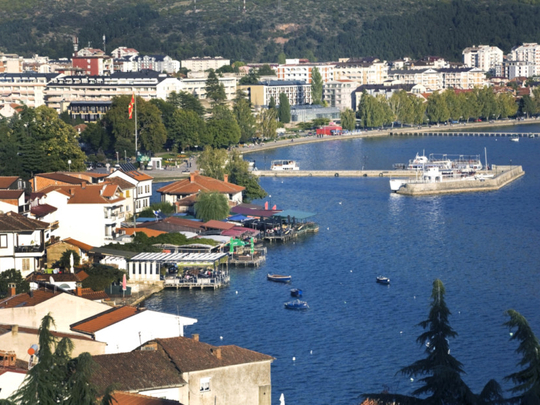
Winston Churchill is thought to have said that the Balkans have produced more history than they can consume. The saying has been repeated by practically everyone who has had reason to deal with the region, for good reason.
The issue on the table now is about the legacy of Alexander the Great, who died in Babylon some 2,300 years ago, and the right to use the term Macedonia.
For more than a quarter-century, the mere existence of the Republic of Macedonia has infuriated Greeks, who claim its neighbour’s name was stolen from the Greek province that borders Macedonia to the south. Greece (particularly its northern region, where Alexander the Great came from) has been doing its utmost to block any attempts by the former Yugoslav republic of Macedonia to get international recognition under that name.
In April 2008, Greece blocked Macedonia’s bid to become a member of Nato. And it has consistently blocked recommendations by the European Commission to start European Union (EU) accession talks with the country. Last Sunday, more than 100,000 people marched in Athens to protest the use of the name “Macedonia”. Huge demonstrations have already been held in Thessaloniki, and the Greek Orthodox Church is up in arms against any compromise diluting the Greek monopoly on the Macedonian name.
The International Court of Justice in 2011 ruled that under existing agreements, it had no right to block accession talks, but the judgement had no impact whatsoever. As some sort of retaliation, the previous government in Skopje has invited ridicule by naming everything in sight after Alexander the Great, erecting statues of the former king in and around the country. A gigantic statue of Alexander himself stands in the centre of Skopje. The Greeks were not amused.
The manoeuvrings on the issue have sometimes ventured into the downright bizarre. After an agreement to let the country into the United Nations under the designation “the Former Yugoslav Republic of Macedonia”, there was still a dispute over where to seat it in the General Assembly. Alphabetic order is normally used, but that was easier said than done. The government in Skopje refused to be seated under “F”, while the government in Athens was adamant on blocking any seating under “M”. The compromise was to seat it under “T” — “the” former republic.
Talks have been held between the Macedonian and Greek prime ministers, and a flurry of activities, consultations and travels have been initiated. But a resolution will require quick and strong action by the leaders of both countries as they will both have to overcome significant opposition from their respective nationalist stalwarts.
But now there is a new possibility of resolving the issue. A new government in Skopje has moved forward in improving relations with Bulgaria, where there have also been long-standing historical issues as obstacles. And with the EU coming out of its period of hibernation on Balkan enlargement issues, there is a new urgency in dealing with Macedonia.
This is just the latest chapter in Macedonia’s tales of historical strife and conflict. In the later stages of the Ottoman empire, the complex ethnic and cultural mix of the region gave way to one international conflict after another — notably the First and the Second Balkan Wars that paved the way for the Third Balkan War, which very quickly become the First World War.
In the early 1990s, the United Nations deployed a preventive peacekeeping force, with United States military participation, to Macedonia. It was less than two decades ago that the country nearly broke apart, in what was to some extent, a delayed extension of the war in Kosovo some years earlier.
Washington, Paris, Berlin, London and others had better pay attention, and do whatever they can to forge and support virtually any name compromise. Should these efforts fail, and if Macedonia is blocked again from both Nato and EU accession, we might well see the buildup of tensions in a historically volatile area. There are numerous alternatives that should be acceptable to everyone — “Upper Macedonia” being only one of many — but it requires clear will, strong determination and distinct political courage to make the necessary compromise. Help from Moscow, on the other hand, is unlikely to be forthcoming. On the contrary: There are most certainly forces in Russia eager to stir the pots of nationalist passions in the Balkans so as to derail any further extension of either the EU or Nato in the region.
The Russians know what is at stake — and so should the rest of the world.
— Washington Post
Carl Bildt is a contributing columnist for the Washington Post.










